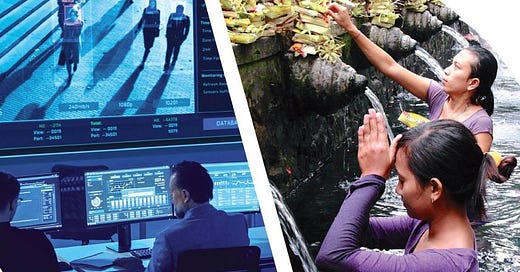Open question on the use of smarter expert systems for well-being, on campus and outside
Potentially as part of an internet of things network of wearables, cameras and trackers
The following is a quick, one question survey-email for a REMO COST action ethnography on the use of expert systems (so-called artificial intelligence) to ensure the well-being and sustainability of everyone involved in campus life, including internet of things campus-wide, even city-wide, and own devices beyond the main software and mobile applications on themselves, through a pan-European science and technology cooperation network on mental health in academia. Anyone wishing to answer, please do so at survey@enricgarcia.md or as a comment.
Asking for feedback and proposals on expert systems
How to use current day capabilities, what to do in order to improve upon? Should we set a pan-European cooperative task force to achieve the best possible result?
Contextualizing introduction as food for thought
From your city-wide campus and the context of each of the students own research and social networks, to the neither that totally isolated Attica Correctional Facility maximum security campus and other enclosed penitentieries. Campus as part of communities and the largest context. This is an open question on how to use expert system to guarantee the well-being, sustainability and preservation of resources. Preservation of life itself, first and foremost: the lives of all involved, as a new chance to learn, collective betterment towards tertiary education mileaus ensuring prosperity and the safety of all their members, constituent parts. The success of their endeavours and the institutions themselves, as a system of teaching and researching: how to use current day capabilities, how to improve upon?
From data collection, bio-metrics tracking with wearable devices and other gear, susveillance and surveillance networks re-engineering, even if something feel eery, used to the maximum of their capacity for good, or not. Worse, knowing full blown applications as simple as games, counseling ones, and the emails themselves can and are tracked for safety and security reasons and unreasons by private, public and sometimes unknown agents craking, selling or interfering for fun and other sorts of profit in the existing systems. How to use current day capabilities, how to improve upon? Can we set a cooperative task force to achieve the best possible result?
How data crunching could save a single student, researcher, professor, staff, colleague or family member from being run by a car while biking to the faculty. Shot, as we know we work and walk places: some of us travel for conferences, undertake fieldwork in less that optimal environments. Teamwork is needed.
Truly provide the gear, proper communications and safety devices, monitor and tracking methods agreed upon and in working order anywhere the request is needed: as easy as establishing a system geared to prevent, hopefully halt, a more or less coordinated and protracted bullying attempt from causing harm to a person. Not careless to the point of not being ready, or willing, to halt it before it is already too late, as regrettably often happens.
To be well aware of the needs of all, and help thrive as anyone else should and can, those among us in higher risk, at that point vulnerable because of special needs not yet properly fulfilled: be it because already marginalized and abused, isolated, sick or ill. The question repeats, not only as the need for a list of specifications and end-game results, also a very technical one at the computing, social and knowledge engineering, all technologies side: how to use current day capabilities, what to improve upon?
Anyone wishing to answer, please do so at survey@enricgarcia.md or as a comment.
Expert Systems and Mental Health Crisis Response Systems
Some Mental Health Crisis Response Systems have started to incorporate expert systems or decision support systems to enhance their effectiveness. Expert systems are software applications that use artificial intelligence (AI) techniques to emulate the knowledge and decision-making abilities of human experts in a specific domain.
In the context of mental health crisis response, expert systems can provide valuable support by:
Triage and Risk Assessment: Expert systems can assist in evaluating the severity of a crisis situation and assessing the level of risk involved. By analyzing the information provided by the caller or text user, these systems can help identify the appropriate level of response needed.
Decision Support: Expert systems can provide guidance to crisis responders or call center operators by offering suggestions or recommendations based on best practices and established protocols. This can help ensure consistent and evidence-based decision-making.
Resource Referral: Expert systems can provide information about available mental health resources, such as nearby treatment centers, crisis helplines, or support groups. This can assist in connecting individuals to the most appropriate resources based on their needs and location.
Training and Education: Expert systems can serve as educational tools for crisis responders, offering access to training materials, case studies, and guidelines for effective crisis management.
While the specific implementation and utilization of expert systems in Mental Health Crisis Response Systems can vary, their incorporation can help improve the efficiency and accuracy of crisis assessments and interventions. However, it's important to note that expert systems should be used as aids to decision-making and as a means to increase response speed and guarantee the best possible resuts, prevention and resultion of crisis rather than replacing the role of trained mental health professionals.





